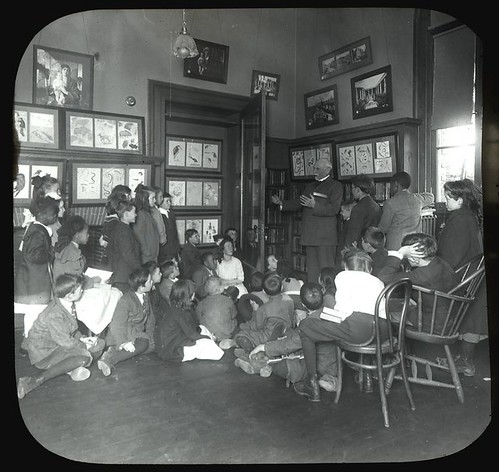Deciding who your audience is, is one of the biggest and most important choices you need to make, before you even begin writing your novel, your blog, your screenplay. Even a poem.
"But," you sputter, "My audience is everyone. I don't want to restrict myself to just mystery fans, or action fans, or left-handed pro basketball players." You have these secret dreams of being the next JK Rowling, Nora Ephron or Stieg Larsson (only you'd prefer not to be dead, so as to better enjoy your fame and popularity.)
 |
| Photo by tkksummers |
Come back from Fantasy Island, my friend. No, I'm not trying to burst your bubble - only you're prematurely focused on who you hope to sell to. You may, in fact, achieve crazy crossover popularity beyond Stephen King's wildest fantasies, but first you have to tell a story.
Do you have a five-year-old? Or, do you know a five-year-old? How about your grandma - or a friend's grandma? Work with me here.
Let's say you want to describe your hot new boyfriend to your five-year-old niece, your grandma, and your most intimate friend.
To your five-year-old niece, you might include, "And he has the biggest... smile I've ever seen. Besides yours, you cutie pie."
To your dearest friend, you might say, "OMG, he's got the biggest d--k I've ever seen. I swear, the thing is like an anaconda, it's kind of scary."
To your grandma, you might say, "He's got the biggest, warmest heart I've ever found in a man." To which Grandma might reply, 'That's all well and good, but how big is his d--k?"
The way you tell a story will change, in tone, vocabulary, and pace, depending on who you are telling it to (and why you are telling it - more on that, later.)
Think about these possible audiences (out of thousands):
- Your future self, perhaps five or ten years from now
- Your current self
- A teenager
- A five-year-old
- Your best friend
- Your rival at work
- A cute neighbor you have a secret crush on
- Your big brother that you utterly love and trust
- Your sister who was always taking your clothes without asking
- Your peers for a scientific journal
- Your rather uptight boss
- The cop who just pulled you over
- Your beloved of thirty years
- Your future grandchildren or great-grandchildren
- Your therapist
- Your hair stylist
- Your potential client
- Your girls' night out posse
- Your fifth period science teacher
- A potential lover you're chatting with on the Internet
- Your parents
- Your favorite aunt
- A jury
- A parole board
- The President of the United States
- Your cat Fluffy
- Your dead cat Fluffy (okay, that's a little creepy)
The second part of storytelling is figuring out why you need to tell this tale. (You in the sense of you the author or storyteller, not you the human being.) Are you looking for understanding or validation? A pat on the back? To clear your name? To justify yourself to yourself? To find kindred spirits?
Are you telling it on behalf of a third party - your best friend, Sherlock Holmes, because you want the world to see how brilliant he is? Or how nefarious someone else is? Do you just want to blow off steam, or incite the people to revolution?
You can start a story without knowing the answers to the questions of who and why... but you'll be doing it the hard way. It may well sound flat, with little vibrancy, bite, and or interest. Unflavored tofu.
By knowing who your audience is, and what you want them to feel, the language and word choices will flow, the tone will feel right, and the pace will sort itself out naturally.
You'll also have to choose a POV (Point of View) from which to write - first person, singular or plural, third person, etc., but we'll do more on that in a future blog.

For now, just figure out who your audience is, and why you're talking to him/her/them.
Pin It
